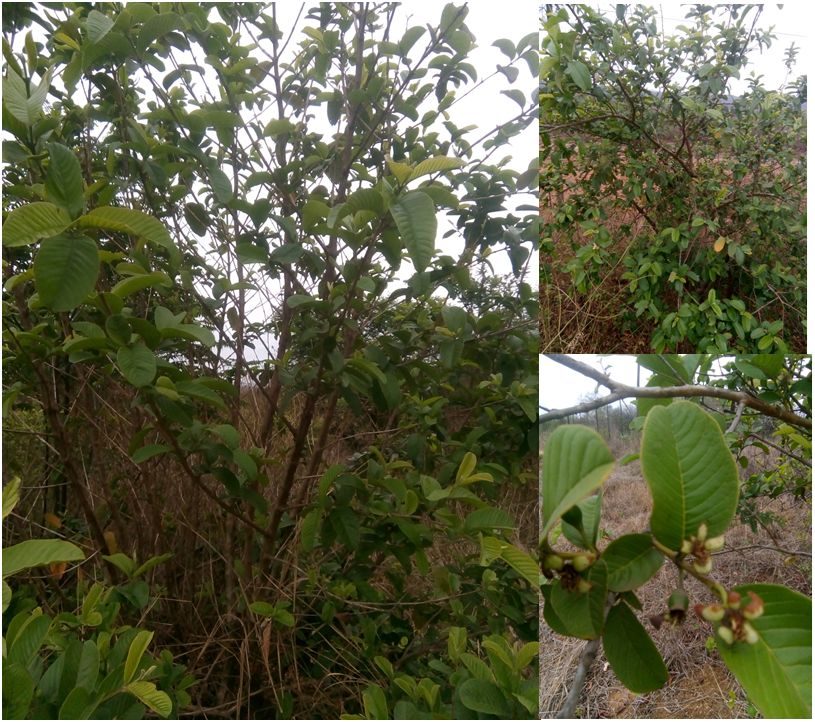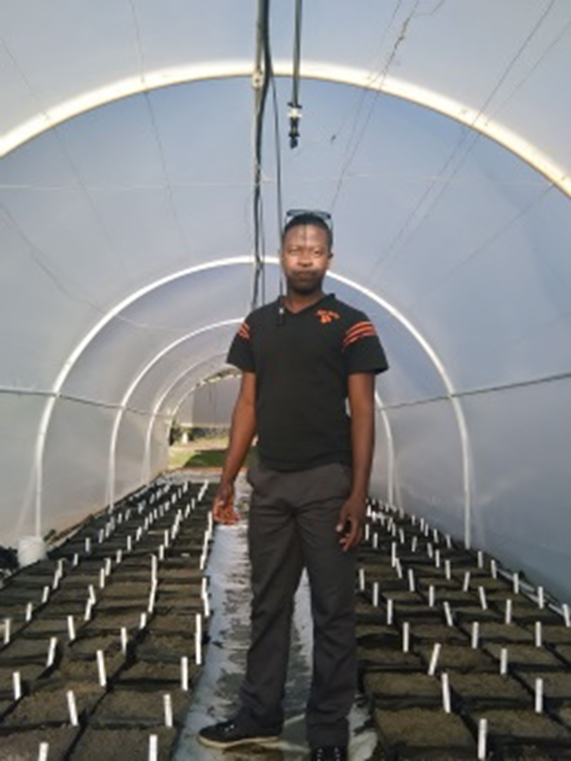Guava (Psidium guajava L.) is a commercially grown small tree, which also invades pastures and abandoned fields in South Africa. The tree acts as a pioneer species in recovering degraded landscapes thus making ecological restoration a challenge. Dr Sheunesu Ruwanza (C·I·B Core Team Member and Rhodes University lecturer) and Farai Dondofema (University of Venda lecturer and PhD student) conducted a comparative study to examined the effects of guava invasion on soil physico-chemical properties, compared to those not invaded, in Limpopo province, South Africa.
Guava invasion had varied effects of soil physico-chemical properties. Soil phosphorus and moisture were higher underneath guava invaded areas as compared to uninvaded areas. In contrast, soil pH was higher in uninvaded as compared to guava invaded areas. Soils underneath guava trees were water repellent as compared to soils underneath uninvaded areas. The observed repellent soils underneath guava trees increased seasonally and were highest towards the dry season. Similarly, soils underneath guava trees had higher infiltration rates as compared to soils underneath uninvaded areas. Soil nutrient concentrations of nitrogen and carbon as well as exchangeable cations of sodium, potassium, calcium, and magnesium showed no differences between guava invaded and uninvaded areas.
The fact that guava invasion can change some soil properties could potentially explain how the tree enhances its growth and how this facilitates its invasion. The study therefore recommends clearing of guava from natural ecosystems to reduce its impact on physico-chemical properties. “Clearing of guava should consider the commercial use and value of guava by local people for livelihood improvement” says Sheunesu Ruwanza, lead author of the paper published in African Journal of Ecology.
Read the full paper
Ruwanza, S., Dondofema, F. 2019. Effects of exotic guava (Psidium guajava L.) invasion on soil properties in Limpopo, South Africa. African Journal of Ecology, DOI: 10.1111/aje.12675
For more information, contact Sheunesu Ruwanza at s.ruwanza@ru.ac.za




